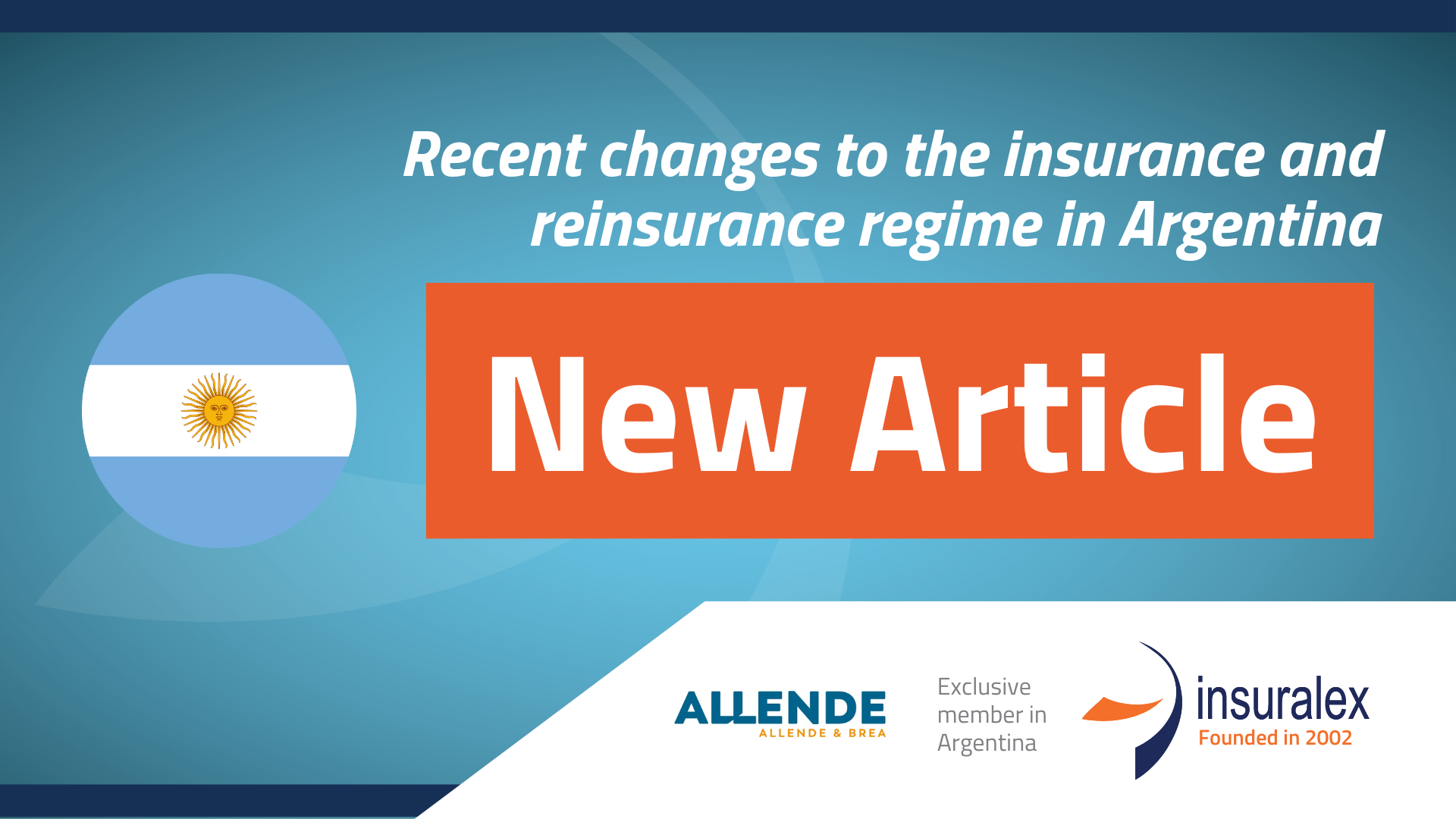
The Argentine Insurance Regulator (“SSN”) has been introducing several amendments to the General Insurance Activity Regime (“RGAA”), which comprises the central guidelines and regulations for insurance and reinsurance companies in Argentina. These amendments cover a wide range of subjects, and in, the view of the SSN, are focused on a process of regulatory simplification which is being carried out simultaneously with the economic measures of the Government.
Amendments to the insurance and reinsurance companies’ investments regime in real estate and real estate developments
Resolution No. 181/2024 has introduced several amendments to the insurance and reinsurance companies’ investment regime in buildings and real estate developments, related to minimum capital requirements for commercializing insurance products, contained in the RGAA.
In particular, the concepts under which buildings must be registered have been narrowed down to buildings for own use, for rent or for sell. Also, the requirements for the computability of imperfect ownerships and for the valuation of buildings are defined, including the possibility of valuating and estimating the useful life of the buildings through the Bank of the City of Buenos Aires.
Additionally, this resolution establishes the requirements for the computability in technical ratios of securities, certificates or other marketable securities issued by infrastructure and real estate development funds. The first requirement is the authorization of public offering by the National Securities Commission (Comisión Nacional de Valores). In the event of lack of such approval, the trust, the trustee, or both of them, must be registered before the National Securities Commission and have a risk rating with sufficient standard results of professionalism and performance in the assessed aspects, as long as the SSN is provided with the information contained in paragraph 1) b. of section 35.16 of the RGAA. If none of these requirements are met, only insurance companies operating in life insurance with savings or retirement may compute these assets in technical ratios.
Amendments to the insurance contract emissions and (re)insurance registries’ regime
By means of Resolution No. 184/2024, changes to insurance policies and incorporation certificates were also introduced, in addition to new requirements and guidelines on insurance and reinsurance books and registries.
One of the main aspects of this resolution is that it is no longer mandatory to include the Unique Policy Identification Code (CUIP). Additionally, the premium detail in insurance policies shall specify the pure premium, acquisition and administrative expenses, additional fees, and any other charges or items used for the formation of the premium.
Furthermore, this resolution reforms sections 37.4 and 37.5 of the RGAA, regarding regulations for accounting and corporate records of insurance and reinsurance companies. For both insurance and reinsurance companies, a single system for recording transactions and closings is established, based on the monthly registry of operations without registering retroactive transactions (except for adjustments made by monthly closings). Accordingly, the annotation of these registries onto digital books shall be made prior to the presentation of the applicable quarterly financial statements before the SSN, notwithstanding those registries with a special regime.
Following the amendments made to insurance policies and certificates, this resolution also suppresses the need to include the Unique Policy Identification Code (CUIP) and the Unique Claim Identification Code (CUIS) in the applicable registries, as well as the annexes of the RGAA which established the guidelines for registering said codes.
In addition to the aforementioned changes, new requirements have been set for the stamp of reinsurance fund movements registries that reinsurance brokers must possess. For this particular registry, the copying of the forms or their annotation on ledgers shall be made within 30 days from the end of the month.
Amendments to the approval regime for insurance products
In line with the resolutions previously mentioned, Resolution No. 197/2024 introduced several changes to section 23 of the RGAA, containing the guidelines and requirements for the commercialization of insurance plans, as well as technical and contractual elements.
The main amendment made by the SSN is the implementation of a system called “Plan Deposit System” (Sistema de Depósito de Planes). Under this system, insurance companies may sell insurance contract terms and tariffs authorized by the SSN – if also included in the annex to section 23.2 of the RGAA – immediately after having deposited the corresponding product plan before the SSN, following the established requirements. To allow the presentation of insurance plans not included in the aforementioned annex, such plans shall be individually authorized through a presentation under the same requirements set forth for the Plan Deposit System.
Along with the new regulations regarding insurance plans, the Great Risks policy emission regime is modified in order to include policies with a sum insured of more than AR$ 5.000.000.000 (five billion pesos), changing the former threshold of AR$ 250.000.000 (two-hundred and fifty million pesos). Although it is still required that such insurance policies neither consist of Personal Insurance products nor have been approved by the SSN (as of the Resolution, through the Plan Deposit System or the individual authorization), the pre and post policy emission requirements are also modified.
Finally, this resolution also reforms the guidelines for microinsurance products and updates the list of general uniform conditions of mandatory use for insurance products contained in annex of section 23.6 of the RGAA, including the general resolutions which were not previously added.
Santiago J. Sturla – Partner
Franco Blanklejder – Associate



